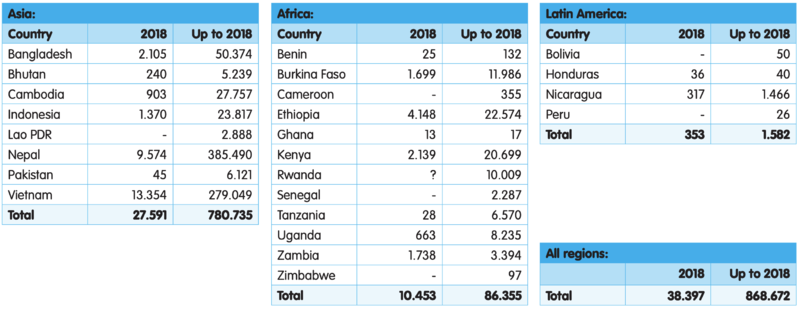Knowledge fuels change
For over a decade, Energypedia has shared free, reliable energy expertise with the world.
We’re now facing a serious funding gap.
Help keep this platform alive — your donation, big or small, truly matters!
Thank you for your support
Difference between revisions of "Renewable Energy Installed Capacity"
From energypedia
***** (***** | *****) m |
***** (***** | *****) m |
||
| Line 19: | Line 19: | ||
= Humanitarian Energy= | = Humanitarian Energy= | ||
| + | Here is a link to the baseline data website: https://unhcr.maps.arcgis.com/apps/webappviewer/index.html?id=1f2c23f25e5d416ebf7c1c0bc8c749ce | ||
{{#widget:Iframe |url=https://unhcr.maps.arcgis.com/apps/webappviewer/index.html?id=1f2c23f25e5d416ebf7c1c0bc8c749ce|width=800 |height=500 |border=0 }} | {{#widget:Iframe |url=https://unhcr.maps.arcgis.com/apps/webappviewer/index.html?id=1f2c23f25e5d416ebf7c1c0bc8c749ce|width=800 |height=500 |border=0 }} | ||
| Line 27: | Line 28: | ||
__NOTOC__ | __NOTOC__ | ||
| + | [[Category:Biogas]] | ||
[[Category:Renewable_Energy]] | [[Category:Renewable_Energy]] | ||
| − | |||
Latest revision as of 11:09, 11 February 2020
Introduction
This article provides the installed capacity for the renewable energy: solar, wind, hydro and biomas based on different sources.
Biomass
The figure below shows the installed capacity of biogas implemented by SNV in different countries in 2018 and cumulatively up to 2018 [1].
Further Information
References
Humanitarian Energy
Here is a link to the baseline data website: https://unhcr.maps.arcgis.com/apps/webappviewer/index.html?id=1f2c23f25e5d416ebf7c1c0bc8c749ce
<headertabs></headertabs>




















